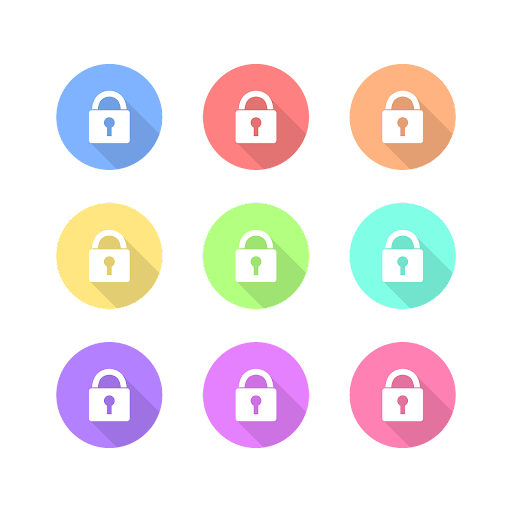3 Cybercrime Cases to Make You Reevaluate Your Cybersecurity
By Kayla Hamahashi
March 4, 2022
While you may think you’re safe from cyber attacks, you’re probably not. Hackers will stop at nothing to steal your personal and private data. Protecting your information by rethinking your current cybersecurity and privacy protocols will help mitigate cybercrime cases. With an increase in digital operations, cybercrime cases continue to grow, creating a need for better cyber resilience. Such cases also represent how poor cybersecurity can be potentially devastating.
Infamous Cybercrime Cases
Cybercrimes frequently involve the use of cyberattacks. Cyberattacks can affect a network’s infrastructure, breach sensitive information, and disable the economy of a nation. Some examples of cyberattacks include denial-of-service attacks, spear phishing, and malware attacks. Since the outcomes of these attacks can be particularly destructive, it is ideal to protect your data to the best of your ability.
With cybercrime cases continuing to rise, it is predicted that it will cost the world $10.5 trillion annually by 2025. Additionally, cybercrime has become so pervasive that everyone should assume that their personal information has been stolen and is on the dark web. The problems that data breaches present aren’t new to companies around the globe. With massive amounts of sensitive data to protect, many companies have been victims of cyberattacks. All companies, big or small, are extremely vulnerable to cybercrime and cyberattacks if proper security precautions are not taken.
2013 Adobe Data Breach
The 2013 Adobe Data Breach resulted in 38 million users having their account data stolen. Specifically, hackers stole around 3 million customer credit card records in addition to usernames and passwords. On top of stealing login data, hackers also stole source code from Adobe Acrobat and Reader, Photoshop, and ColdFusion.
Due to poor security practices and an old encryption system, Adobe was easily hacked through one of its old backup servers. To combat the hack, Adobe decommissioned the corrupted backup server and notified affected users, law enforcement, and banks of the data breach.
While this data breach is still being discussed years later, Adobe has hired security auditors, implemented two-factor authentication, discontinued the use of password hints, and increased network monitoring to prevent a repeat of what occurred in 2013. Following this breach, Adobe ended up paying $1.2 million in legal fees plus settlements to settle customer claims.
2018 Marriott Data Breach
Known as one of the biggest data breaches of the 21st century, the 2018 Marriott Data Breach affected around 500 million users. The data breach compromised guest records that contained extremely sensitive information, such as credit card and passport numbers.
While a definite cause of the data breach hasn’t been revealed, there is speculation that Marriott’s purchase of Starwood Hotels & Resorts Worldwide, Inc. is related to it. Years after this purchase, Starwood’s IT infrastructure was still being used rather than migrating to Marriott’s reservation system. Eventually, in 2018, an internal security tool flagged an unauthorized attempt to access Marriott Starwood’s reservation system. Research into this attempt and Starwood’s systems revealed that their network had most likely been compromised for nearly four years without going noticed.
Marriott and Starwood’s security failings contributed to this breach — these joined parties lacked a strong cybersecurity structure and vigilant, prepared IT team. As a result, Marriot could potentially have to pay up to $12.5 billion in cost and losses.
2020 Twitter Spear Phishing Attack
In 2020, high-profile accounts began publishing suspicious Tweets after Twitter’s systems were hacked; this is known as the 2020 Twitter Spear Phishing Attack. Spear phishing is a type of cyber attack that attempts to trick users into revealing some type of personal information.
Through social engineering, a phone spear phishing attack was executed on a small group of Twitter employees. Once these employees revealed their login credentials to hackers, Twitter’s internal support tools were infiltrated and employees with greater access privileges were targeted. Hackers were able to acquire higher-level login credentials, and thus target specific Twitter accounts belonging to individuals such as Barack Obama and Elon Musk.
Acting as these high-profile users and celebrities, hackers began their scam of encouraging people to donate Bitcoin under the pretense of “doing good”.
Overall, 130 Twitter accounts were targeted, 45 tweeted from, 383 Bitcoin transactions made, and 12.86BTC stolen from victims. For reference, 12.86BTC was equivalent to about $117,000 at the time. Since then, Twitter has taken action by bettering its detection of unauthorized access to its internal systems, increasing cybersecurity competence amongst different teams, and prioritizing security work.
Rethink Your Cybersecurity

Assuming you are compromised and acting accordingly is a key principle of cybersecurity. These cybercrime cases provide perfect reasons for constantly monitoring your systems and establishing a dedicated cybersecurity team. Whether companies are able to protect their data and fight cyber threats heavily affects their business value. Doing everything possible to keep your data safe can help maintain a strong business image and prevent devastating cyberattacks such as those described in this article.
With cybercrime breaking records every year, investing in a strong security solution allows companies to stay vigilant against cyber threats to their systems. humanID is a robust security solution, combining the convenience of single sign-on with the safety of anonymity and privacy.
As a form of two-factor authentication (2FA), humanID makes logon more secure. Unlike other forms of 2FA, humanID protects sensitive data from hackers by never storing your personal information. With the growing popularity of hyper-connectivity, hackers are finding new ways to breach your data, making it even more important to protect it with groundbreaking solutions like humanID.



Thank you for any other fantastic post. Where else may just anybody get that type of info in such a perfect means of writing? I’ve a presentation next week, and I’m at the search for such information.